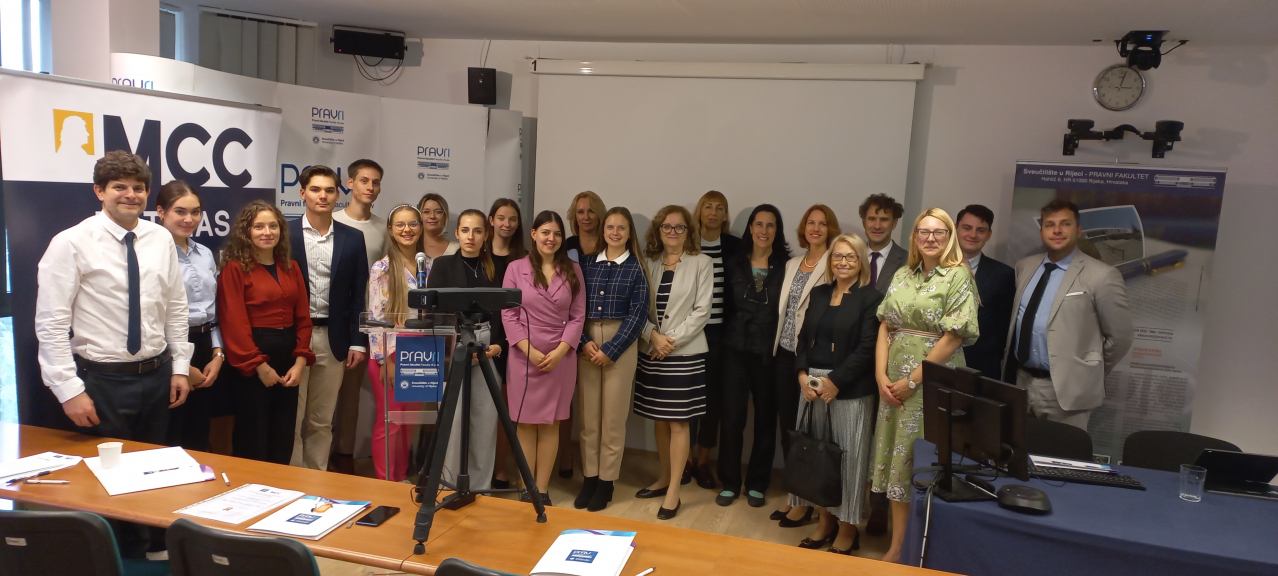Reading time: 2 minutes
16 students from MCC's School of Law participated in an international conference on different aspects of cultural heritage protection. The conference covered topics such as the protection of culture in the era of globalisation and European integration, the challenges of artificial intelligence and armed conflict, and the specific situation of underwater heritage. The students presented cases of Hungarian cultural heritage protection such as the Verespatak investment and the protection of the origin of Tokaj wine.
The MCC School of Law and the University of Rijeka organised an international conference in Rijeka on the legal protection of cultural heritage. The conference analysed the protection of cultural heritage from several legal perspectives. Renowned speakers from all over Europe were present and students had the opportunity to present on Hungarian cultural heritage protection. The international and European legal aspects of cultural heritage, artificial intelligence, armed conflicts, and the challenges of global warming were discussed in addition to the importance of V4 cooperation and the situation of Hungary in the field of cultural heritage protection. The presentations also addressed the unique and rare examples of underwater heritage protection..
One of the main conclusions of the conference was that the protection of intangible cultural heritage is as important as the preservation of monuments and buildings for the maintenance of our civilisation. In addition to the presentations, conference participants visited the Trsat Castle, built by the Franciscans and home to Croatia's first museum. They visited the Church of Mary of God of Trsat, which is steeped in legend and wonder. They also visited the castle of Mošćenička Draga and the monarchy-era popular resort and spa town of Abbazia.
During the informal discussions that followed the lectures, the host speakers introduced our studnets to their local way of life and eating habits. Through these experiences our students learned how preserving their way of life is a national community's way of self-determination and creativity.









